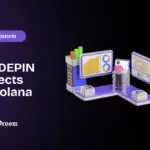This is a thorough article that includes a full-scale review of the top crypto tax programs, considering their functionalities and characteristics. You’ll learn how cryptocurrency taxation has developed, how it has been challenging, and what is likely to happen going forward in one of the most critical areas of our time.
- The Importance of Crypto Tax Software
- Complexity of Tax Regulations
- Varied Transaction Types and Frequencies
- Unique Nature of Digital Assets
- The Scrutiny of the IRS and Global Tax Authorities
- Automation and Efficiency
- Review of the Best Crypto Tax Tools
- Key Features and Considerations
- Challenges and Future Developments
- Regulatory Changes
- New Transaction Types and Technologies
- Integration with Financial Planning Tools
- Improved Automation and AI Integration
- Enhanced Support for DeFi Transactions
- Conclusion
This article reviews the best crypto tax software, highlighting the importance of this solution against changing laws and regulations. The report depicts specific characteristics, difficulties, as well as expected enhancements in cryptocurrency tax reporting explaining the diverse arena of cryptocurrency tax reporting.
Cryptocurrency trading is considered one of the most popular forms of trading. The more complex the crypto markets become, the more complicated the crypto tax issues. Reporting transactions involving digital assets requires precision since this area has been changing.
While there are several cryptocurrency tax software available, which seek to make it easier for individuals to report their cryptocurrency transactions. This will be a comprehensive review of some of the best cryptocurrency tax programs in existence presently with regard to functionality, attributes, as well as user experience.
The Importance of Crypto Tax Software
The demand for crypto tax software has been more important than ever because of some major reasons from the digital money side and the changing conditions with tax laws.
Complexity of Tax Regulations
Cryptocurrency, in one jurisdiction, has a certain tax treatment, while another will have a completely differing regime. However, in some countries, these financial products are classified as commodities, currencies, and assets. The lack of standard global regulation makes life difficult for the individual who is engaging in crypto transactions and the business involved. This monitoring of all changing tax regulations can prove to be a very complicated and difficult thing.
Twitter as some additional information concerning crypto tax:
Varied Transaction Types and Frequencies
Cryptocurrency deals can take different shapes such as buying, selling, trading, stacking, and mining among others, while also involving cases of airdrop among others. The various types have different tax consequences. This also comes up due to the high number and repetitive nature of transactions, especially for active traders and DeFi. Tracking and tallying gains, losses, and tax liabilities arising from all this multiplicity of transactions is a tedious task vulnerable to mistakes.
Unique Nature of Digital Assets
As such, cryptocurrencies pose several risks, unlike the conventional financial assets discussed above. These elements are made even more complicated by other factors, such as hard forks, airdrops, and token swaps. Tracking cost basis and fair market value for such events is very complex and should be highly accurate. Finally, the fact that cryptocurrencies are anonymous and operate on a global stage makes collecting taxes from them quite difficult when not equipped with specialized monitoring software.
The Scrutiny of the IRS and Global Tax Authorities
Cryptocurrencies like bitcoin are fast coming under the spotlight of tax authorities, including the IRS in the US and their counterparts elsewhere. For example, the IRS expressly inquires into cryptocurrency activities on its tax form, which shows the watchfulness of the entity and its resolve to enforce adherence to the law. These transactions are undergoing scrutiny, which pushes for a higher level of correctness and openness to evade audits or possible penalties.
Automation and Efficiency
This is where crypto tax software comes in as a more comprehensive solution to these challenges. These platforms streamline the process of monitoring transactions, determining profits and losses, and creating tax reports. They help enhance ease in conducting business, giving users the leeway to concentrate on their trading and investment strategies.
Review of the Best Crypto Tax Tools
CoinTracking
There is one tool that you may need to consider, and that’s CoinTracking, which is one of the leading cryptocurrency tax programs that provides a plethora of options for both leisure and seasoned traders. Users can bring in transactions in diverse exchanges with tools for computing gains, expenses, as well as tax liabilities. As such, CoinTracking is one of the most preferred platforms by crypto investors due to its simple design and extensive report-generating capabilities.
CryptoTrader Tax
CryptoTrader. Tax. Reporting cryptocurrency tax can be achieved in an easy manner using tax. It also allows users to import their transactions through API or CSV files and makes IRS-friendly tax reports. It enables numerous transactions, such as staking, mining, and other activities. It is simple and accurate, so it qualifies to be one of the competitors.
ZenLedger
One of the most popularly known tax software is ZenLedger which supports more than three hundred exchanges and wallets. Their sturdy platform streamlines the task of computing capital gains, revenue, and other tax duties. This allows the users to issue forms like IRS form 8949, schedule D among others. Its competence in facilitating complex transactions differentiates it in the market.
Koinly
Koinly is an efficient tool that makes things easier as all it requires is plugged in. There are several currencies available, and the data is updated in real-time together with exchanges. Koinly’s tax reports are comprehensive, covering income, capital gains, and losses. This platform has a user-friendly interface for the ease of inputting data while remaining accurate in tax reporting.
TaxBit
TaxBit offers services for individual people, organizations, as well as tax practitioners. The solution connects automatically with the exchanges or wallets, thus giving the correct value of taxes generated. TaxBit has various unique tools of modern times, including audit trail, tax optimization, and integration to accounting software, thus making it a broad tax solution.
Key Features and Considerations
When evaluating cryptocurrency tax software, several factors come into play:
Accuracy
It has to make precise determinations of gains, losses, and tax payments.
User Interface
The interface should be intuitive while allowing for ease of navigation, as well as understanding it.
Data Import and Integration
Import processes in various wallets and exchanges also need support as well as ease of use.
Tax Reporting
The reports for the tax should be in line with those stipulated by the IRS and other regulating bodies.
Customer Support
User experience is enhanced by good customer support.
Challenges and Future Developments
Crypto tax software has always been advancing, due to the changing regulation environments, emerging different transaction types, and various technologies involved. However, these shortcomings have generated innovation and will change how these solutions develop in the future.
Regulatory Changes
There is constant change in the regulatory sphere surrounding the crypto market. A lot of governments around the world have been struggling to create clear regulations on tax for cryptocurrency. These adjustments might be challenging to users, together with enhanced solutions geared towards enhancing accuracy in tax reporting. Such changes make necessary the constant evolution of the crypto tax software, which has to incorporate new laws and legal formulae in its equations and statements.
New Transaction Types and Technologies
New forms of transactions and technologies crop up in the crypto sphere every day. It is evident that popular innovative financial instruments include DeFi platforms, yield farming, liquidity provision, NFT tokens, and many others. Nevertheless, they have a distinctive character and no common report forms, which may result in difficulties for tax reporting software. Given the diversity of transactions on these platforms, tax software needs to change dynamically and ensure accurate reporting for these new forms of deals.
Integration with Financial Planning Tools
Another predictable evolution is in relation to crypto tax software that encompasses wider financial planning functions. With the increased integration of cryptocurrencies in conventional finance, users will require single platforms, enabling them to manage their financial matters.
For instance, it can incorporate the crypto tax software in the traditional financial planning program, making it possible for people to know all the aspects regarding their financial status. Such integration could reveal important details on how investment funds can be raised effectively, how risks can be managed properly, and how different portfolios, including those of traditional and digital currencies, can be tracked together.
Improved Automation and AI Integration
Future software solutions may mainly target automation as a core feature. More advanced automation can be implemented through AI, which reduces manual entries and makes tax calculations more accurate and efficient. Automation would make it possible to track transactions in real-time, allowing for more timely reports on both the revenue side and the tax assessment side, with less room for errors.
Enhanced Support for DeFi Transactions
DeFi is one of the most important disruptors in the crypto space that provides multiple financial products free from central control institutions. There is a need for crypto tax software to adapt its functions in response to the complexities that entail yield farming, liquidity provision, and sophisticated staking procedures. These software solutions will require more accurate tracking, calculating, and reporting of taxes on these DeFi-related activities.
Conclusion
Reporting on cryptocurrency tax is very cumbersome and involves much of the time. While, nowadays, it is much less challenging due to crypto tax software for traders and investors. The platforms have distinct characteristics and advantages, which are tailored to specific users’ needs.
One should therefore go for the most appropriate program depending on whether he prefers simplicity or complexity, the number of transactions, and the particular features to be included in his or her system.
On another note, these tools are invaluable when preparing tax returns, but care should be taken when computing the tax liability for accuracy in tax reporting. Following changing regulations and consulting experts may help a person cope with various challenges that lie in the way of understanding the taxation rules for cryptos. The surveyed software selections serve as an excellent point of entry for those seeking to simplify reporting on taxes of crypto.




















